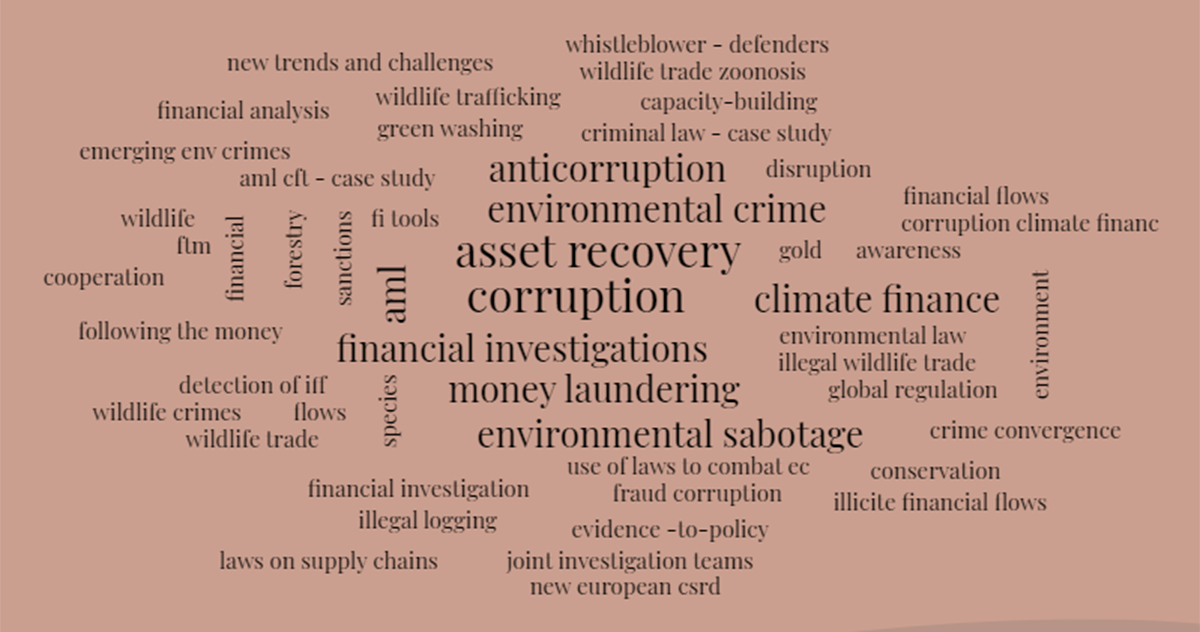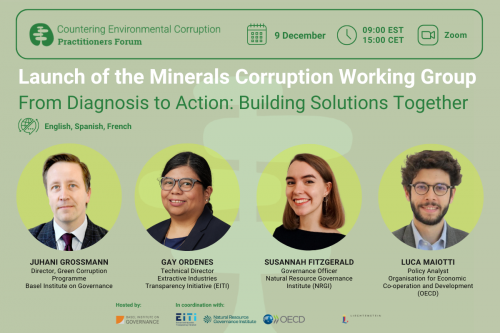Following the money to target illegal fishing

Illegal fishing was the theme of the first Follow-the-Money (FTM) Working Group meeting on 15 March 2023. The Basel Institute on Governance leads this Working Group as part of the Countering Environmental Corruption Practitioners Forum, an initiative of the Basel Institute, WWF, TRAFFIC and Transparency International. All professionals working (or aspiring) to tackle the illicit finances of environmental criminals are welcome to join.
The Working Group gathers virtually on a monthly basis to share best practices, challenges and updates. This time, an experienced former prosecutor and current conservationist was invited to discuss the prosecution of serious fisheries offences, sharing two examples, one criminal and one civil. While the prosecutions took place in the US, the cases focused on the operations of transnational criminal networks.
During the meeting, they shared their wide experience with illegal fishing globally, as well as expertise in enforcement technologies and operations.
First use of VMS technology
The civil case was the first to make use of evidence from a Vessel Monitoring System (VMS) using geostationary satellites, a system of triangulation in fisheries enforcement and management. At that time (20 years ago) this type of technology had not yet been used as evidence of a violation or offence in a courtroom.
By using the vessel’s VMS trackline, it was possible to prove that the vessel had made more than four dozen incursions of varying depths in the closed area where fishing was prohibited, just during an eight-day fishing trip. According to the speaker, a major challenge experienced in this case involved proving the technology’s accuracy to the judge.
Precedent-setting cases such as this are vital in advancing the fight against illegal fishing and other environmental crimes. We hope to see more such milestones from the participants of the Working Group.
Lobster fishing in South Africa
The criminal case presented during the meeting was the widely known Bengis case, related to the illegal trade in rock lobster from South Africa to the US over more than 15 years. It involved a major jail sentence and the unprecedented recovery of criminal assets.
The South African fishing company, Hout Bay Fishing Industries, overfished lobster and other protected fish, deliberately breaching government-established quotas. The extent of unlawful overfishing was such that environmental experts had claimed that lobster numbers in South Africa were in freefall and that the terminal decline was only halted when a criminal investigation commenced (more details can be found in the court judgement).
There were significant forensic difficulties in tracing profits that were placed in complex offshore trust and company structures. Also, the mutual legal assistance required for this case operated differently 20 years ago. Our speaker mentioned that nowadays people are more aware of the interconnectedness of environmental crimes and other types of illicit acts, which can help in the process of investigation.
This case was prosecuted in the US using the Lacey Act, which makes it an offence in the US to import, receive, transport or sell in interstate or foreign commerce any fish or wildlife that has been taken, possessed, transported or sold in violation of any foreign law. Arnold Bengis, the owner of Hout Bay Fishing Industries, pleaded guilty. Later on, South Africa suggested that the financial gains of the illegal enterprise were far greater and claimed restitution for the loss suffered. For more information on the financial aspects of this case read the case study.
Next steps for the Working Group
After an open debate of the case studies, the coordinator raised the importance of getting to know each other and identified interesting topics related to the exercise of financial investigations, environmental offences, money laundering related to environmental crimes and other related issues. An online brainstorming highlighted financial investigations, asset recovery, corruption and climate finance as major topics of interest.
As a member-driven initiative, the participants then discussed the format and management of meetings. Overall, participants agree that the main objective of the group is to learn from each other’s experiences and propose new topics that allow us all to continue learning. The next meeting is scheduled for 19 April.
Learn more
- Learn more about the Countering Environmental Corruption Practitioners Forum
- Find out about the next Follow-the-Money Working Group meeting



